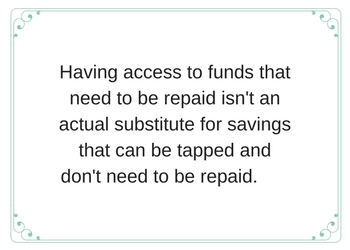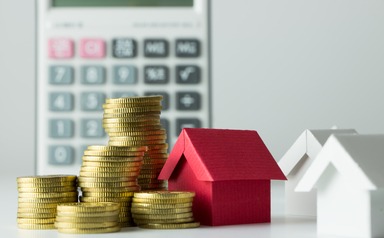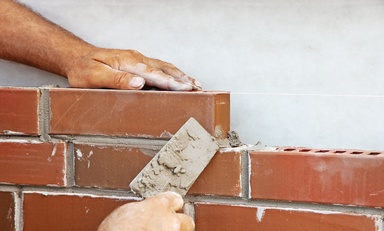 If you have reviewed HSH.com's "Understanding home equity" article and worked to build a positive equity state in your home, it may be valuable to learn how you can put that home equity to use. This article identifies four common uses of the funds available via home equity loans and home equity lines of credit (HELOCs) and cautions against aggressive or frivolous uses.
If you have reviewed HSH.com's "Understanding home equity" article and worked to build a positive equity state in your home, it may be valuable to learn how you can put that home equity to use. This article identifies four common uses of the funds available via home equity loans and home equity lines of credit (HELOCs) and cautions against aggressive or frivolous uses.
Home equity can be a powerful financial ally, and you can literally use it for virtually anything. That said, should you, and if so, for what?
Keeping in mind that a sizable equity stake may take a long time to accumulate, it's best to try to use your built-up equity judiciously. There are many ways that homeowners use their equity; four of the most common uses of home equity are:
1. Debt consolidation
For many homeowners, debt consolidation is one of the primary ways that equity is leveraged to produce budgetary relief. It can make financial sense to pay off high-interest-rate credit card debt for lower-interest mortgage debt. If this is done on a one-time basis (or even on a few occasions in your lifetime) it can create additional cash flow for a strapped household.
If you are considering tapping into home equity to consolidate debt, recognize that you are likely substituting unsecured debt for secured debt. In the event you cannot make payments on an unsecured debt, your credit access is curtailed and your credit rating takes a hit, but lenders have somewhat limited recourse -- they can send you threatening letters, hire debt collection agencies to harass you and may even file a legal action against you to compel you to pay if your outstanding balance is high enough to warrant it. None of these would be a welcome happenstance. However, if you convert your unsecured debt into debt secured by your home, all of the above can occur -- and the home equity lender may even be able to force a foreclosure action (provided any first lien holder agrees). Legally, you could risk losing your home, although it is more likely that the lien will remain open on your home and be repaid to clear the title when the time comes to sell the property.
So before you look to use the equity in your home to consolidate debt, no matter how beneficial the outcome, you may need to take a hard look at your finances and spending habits. If you have trouble controlling your spending, you may find that after a debt consolidation you may be tempted to spend more freely again, and could quickly find yourself more deeply in debt than if you hadn't consolidated at all.
2. Home improvement
Perhaps the most frequent use of home equity is to use it to improve the home itself. This can be a very good thing, akin to using dividends from stock holdings (or interest) to re-invest and build the value of an asset. Not only can these changes make your house more comfortable and more livable while you are there, many common upgrades or renovations can return a sizable portion of your spending by increasing the home's value. Remodeling Magazine notes that in 2021, a bathroom renovation returns about 60 percent of your outlay, and a minor kitchen remodeling may return as much as 72 percent of your spend. In a way, it's like getting the benefit of a modern $10,000 kitchen for just $2,800 when all is said and done.
Be aware, that some things that seem like home improvements or value-enhancers really aren't. For example, a built-in swimming pool may be an oasis for you, and add value to your family's life, but for many buyers these represent a logistical and financial headache, due to maintenance and insurance cost increases. You may get joy out of your spend, but you might not get much of your money back -- return estimates range from 5 to 25 percent recovery of your outlay, depending on the pool itself, the neighborhood, the area of the country and more.
Using your equity for things that can raise the value of your home is a good idea from a financial perspective. Using it for things that you enjoy, will use and otherwise get value from is fine, too… even if you don't get all of your money back in the end.
3. Education
Another popular use of built-up home equity is to help cover the costs of college tuition, housing, meals and fees when you or your child heads to (or back to) school. According to a 2021 study titled "How America Pays for College" by SallieMae, about 6 percent of all families that borrowed money for education funding used a home equity loan or line of credit to do so. Even though many places have seen home prices and equity positions recover from the Great Recession, not every market has recovered, or recovered to a point where there may be sufficient borrowable equity to use; it wasn't clear if the study looked at usage when students have graduated and payment deferments on student and parent loans come to an end, so this figure may ultimately be higher.
Should you use equity to pay for school? That's hard to answer. There can be advantages -- low interest rates and convenience to name two, and with a HELOC, flexibility in drawing funds as needed to cover items as you go along. That said, it's probably not realistic to think that most or even many homeowners have sufficient borrowable equity to cover the costs of college; the College Board notes that annual costs range from about $10,000 per year for in-state students at a public school, but more than double this figure for out-of-state students (and more than triple for private-college attendees). To have $40,000 to $130,000 in borrowable equity in today's market, you'll need a very deep equity stake indeed.
For most folks, student and parent loans, scholarships, grants and savings combine to cover the cost of education, but your home's equity may also play a role.
4. Emergency funds
In recent years, and certainly dating back to before the Great Recession, homeowners were encouraged to set up low-cost HELOCs as a kind of emergency line of credit. This can be an effective use of your home's equity, creating a buffer between you and an expensive fiscal problem that might otherwise require you to add to your credit card balances. Unexpected costs can occur at any time - a water heater may come to the end of its life, or a roof may need to be replaced, and having readily-tappable funds can make dealing with these issues less financially painful.
 Keep in mind: having access to funds that need to be repaid isn't an actual substitute for savings that can be tapped and don't need to be repaid. Don't count on having access to new funds via a line of credit in the event that you have a sudden change in your credit rating or if property values show signs of softening; lenders can limit or terminate your access to your equity.
Keep in mind: having access to funds that need to be repaid isn't an actual substitute for savings that can be tapped and don't need to be repaid. Don't count on having access to new funds via a line of credit in the event that you have a sudden change in your credit rating or if property values show signs of softening; lenders can limit or terminate your access to your equity.
When the economy began to sag in the early stages of the last recession, many borrowers discovered that lenders invoked so-called "curtailment" clauses, effectively cutting off access to funds. For most, this came without warning and caused all manner of fiscal havoc. Of course, this may or may not ever happen again, but as access to your equity is at the behest of an outside firm with its own interests in mind, it's not a good idea to have this be your sole emergency resource.
Spending cautions
It's important to note a few things on which you probably shouldn't spend your hard-won equity.
- Stock purchases. Drawing equity out of your home to invest in the stock market is something you probably shouldn't consider. Sure, a slug of cash invested in a hot stock sounds enticing, but any investing pro will tell you that borrowing money -- even your money -- to invest in a market that could slump without warning could leave you with both investment losses and higher debts to boot.
- Depreciable assets. Using the equity in your home to purchase assets that generally only depreciate may not be the best idea, either. Famous examples include cars, trucks and boats, all which tend to lose money from the start and for a long while after.
- Certain luxuries. Judgement calls come into play with some elective purchases. An round-the-world vacation may be a once-in-a-lifetime opportunity, but could also cause you to have long-term headaches if your financial circumstances don't work out as planned. An expensive piece of jewelry might end up in a drawer more often that it is worn and enjoyed.
Getting the most out of your home equity means working to protect it, enhance and grow it and using it cautiously and judiciously. With tending and long-term cultivation, you could one day find yourself with a home you own free and clear, and with an equity stake that could eventually provide important support in retirement in the form of a reverse mortgage.
To complete your basic understanding of home equity loans and home equity lines of credit, read the next article in this section on determining how much you can borrow.
Next article: Determining how much equity you can borrow
Previous article: Understanding home equity



